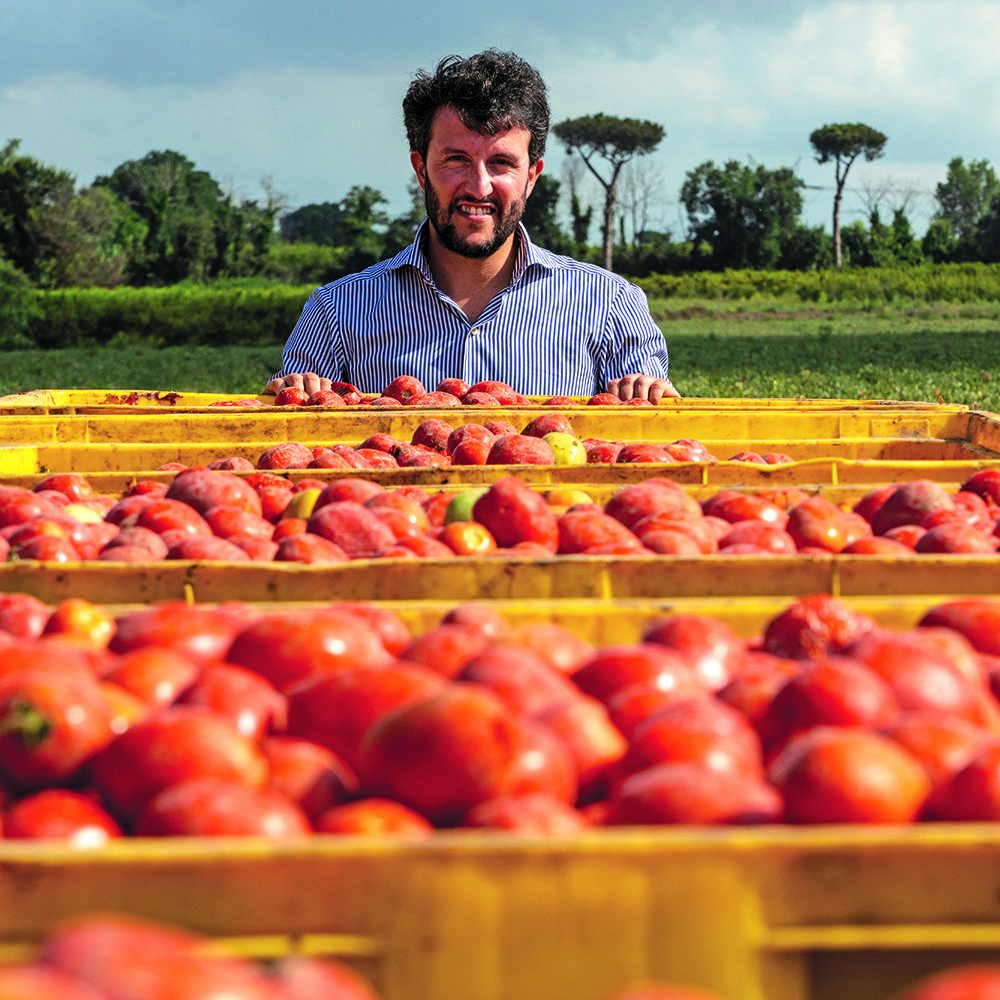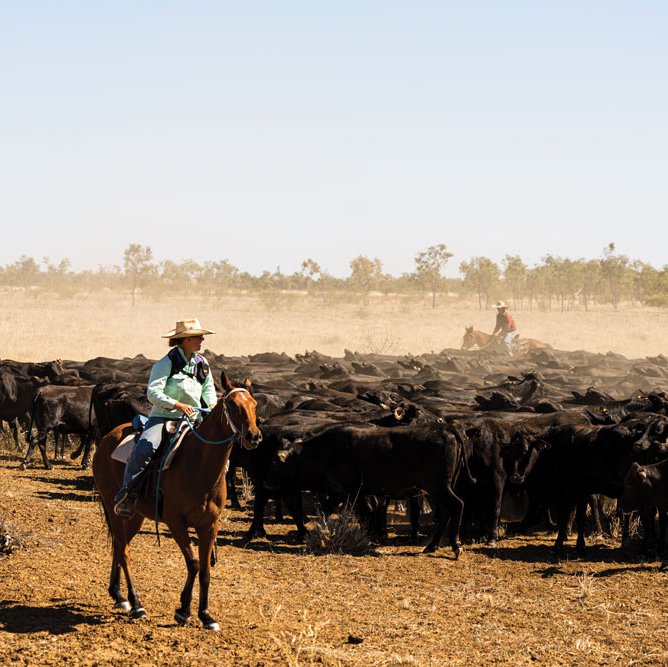If there is a land of tomatoes, anywhere in the world, it’s found across the provinces of Campania and Apulia – the ankle and the heel of the so-called ‘boot’ of Italy. Localised climate conditions are optimal for these peculiar delicacies, which ripen bright red and round out of flowers like seeded fruits, but serve as vegetables when plucked, cut and cooked.
“You need a wet winter, a decent amount of water, followed by a dry summer,” says Diodato Ferraioli, export sales director of longtime Salerno-based suppliers La Doria S.p.A. “South Italy is also ideal because Apulia is close to the sea, with lots of land for large-scale production. And Campania has very good volcanic soil that is very fertile for growing tomatoes.”
La Doria does not grow its own but has worked with specialist farmers in the region since Diodato’s grandfather and namesake founded the company in 1954. It began as a single factory, processing those sweet plum tomatoes and related products for local consumers, then steadily extending its export trade to the UK and elsewhere, acquiring other companies to expand the business, and diversifying to canned sauces, beans, pulses and fruit juices.
“This ensures that we can work all year round,” says Diodato, because the tomato season is relatively short and intense, “from the end of July to the end of September.”
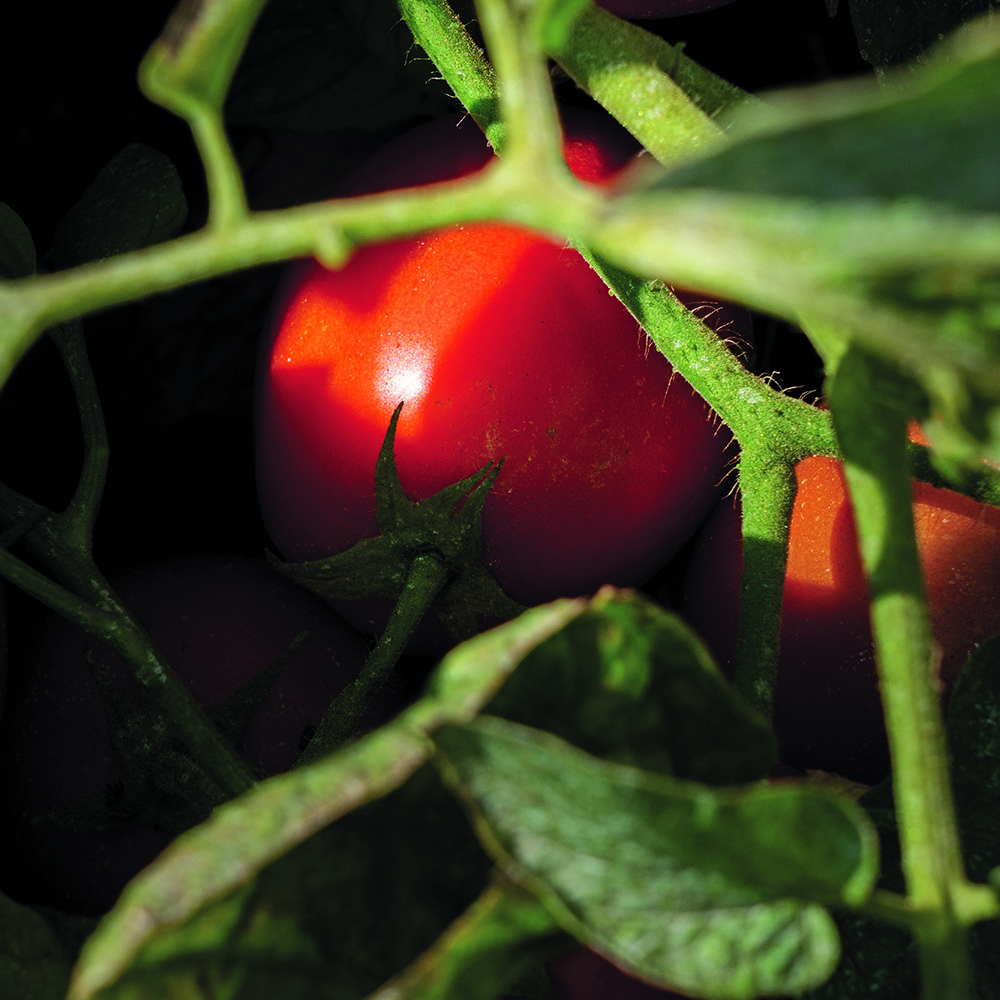
Southern Italy’s wet winters and dry summers are ideal for growing tomatoes
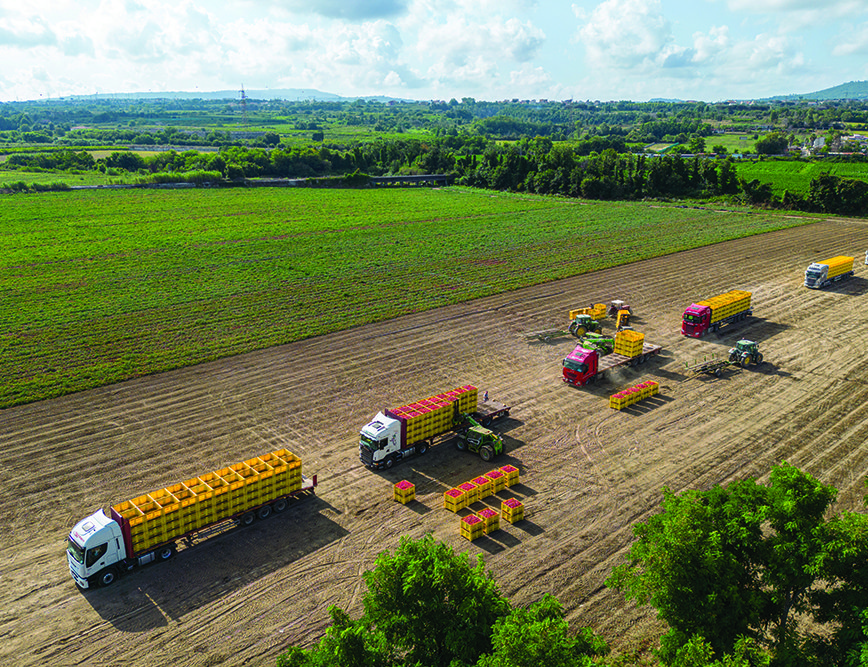
Harvesting is completely automated, which ensures better working conditions for field workers
Each specimen must be perfect when picked because it will be canned whole (or chopped) within 24 hours of harvesting. “It makes the processing time very busy but also gives the customer the freshest possible product, much tastier than any tomato that you might buy in winter, which was probably grown in a greenhouse and not under these natural conditions.”
Our customers can certainly taste the benefit of La Doria’s working practices, especially in its peeled cherry tomatoes: “a very particular premium product that we do for Spinneys.”
Certain other items in the range are no less traditionally, historically Italian. Diodato explains that pulses, for example, and chickpeas in particular, were apparently used by the ancient Romans to make the earliest pastas. As a leading European supplier of canned pulses, La Doria has also built up “a lot of expertise” in products more associated with foreign markets, most notably baked beans and red kidney beans.
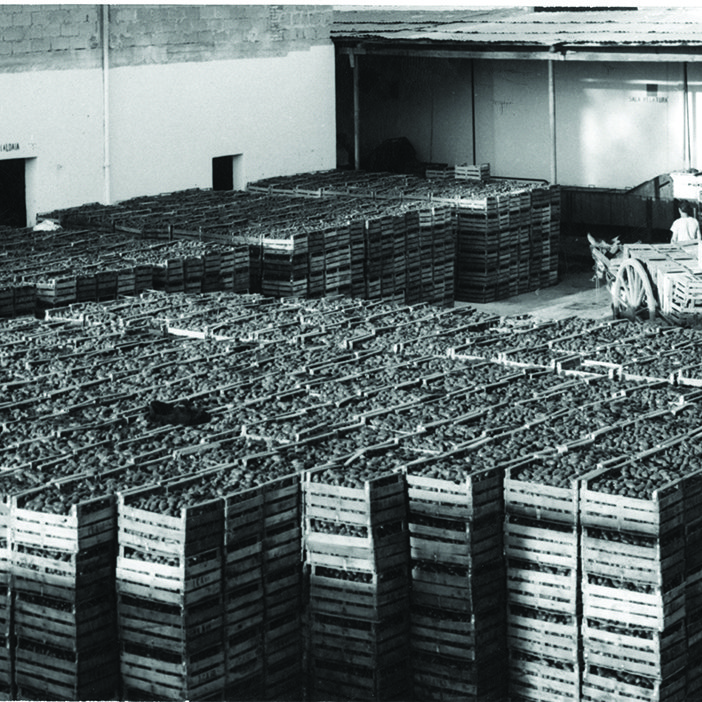
Harvesting was a lot more labour intensive back when the company first started
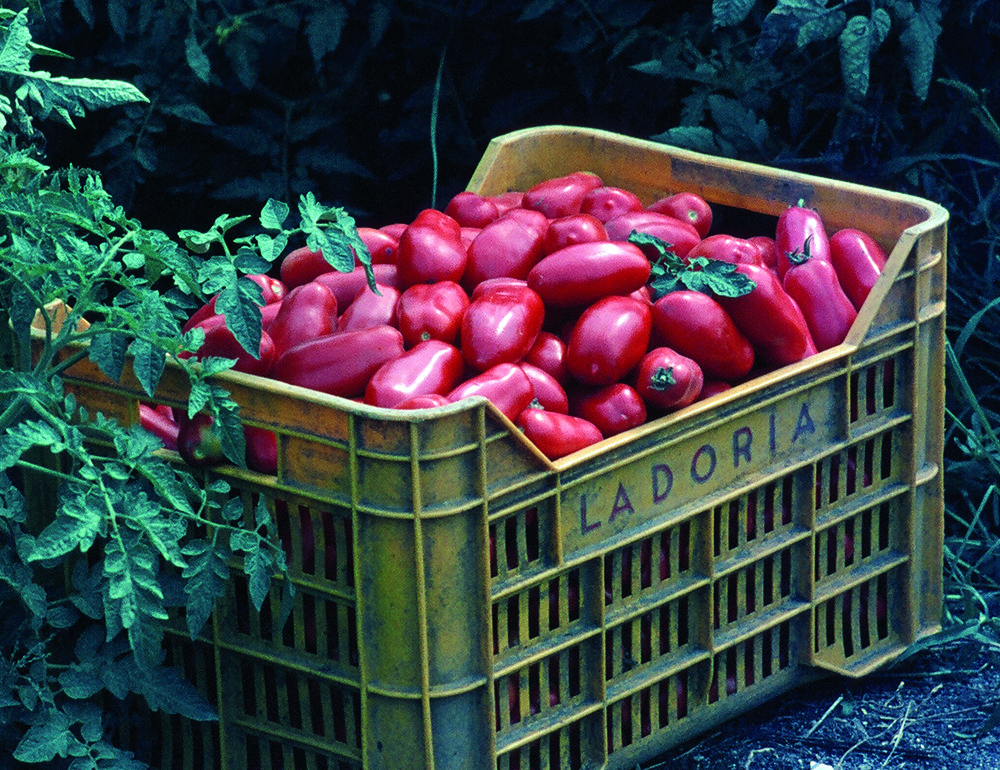
Only perfect tomatoes are selected for the canning process
The company is now vertically integrated in such a way that it also manufactures its own cans, while those half-century relationships with growers have seen working conditions gradually improved by way of technology – from mechanical harvesting to digital crop monitoring and “precision farming”.
Diodato elaborates further on the harvesting process:
“It is completely automated, which ensures better conditions for field workers. The machine takes tomato plants from the fields and shakes them over the sorting belt so ripe tomatoes fall off the plants. This is followed by the first round of sorting during which stones and mud are removed. Tomatoes are then manually selected before being automatically packed into boxes. After this, the boxes are loaded onto trucks and then transported to our factory.”
Regular ethical audits in the field “ensure that everything is done to the highest standards”, and sustainability has become part of the process in line with its growing importance to the average consumer.
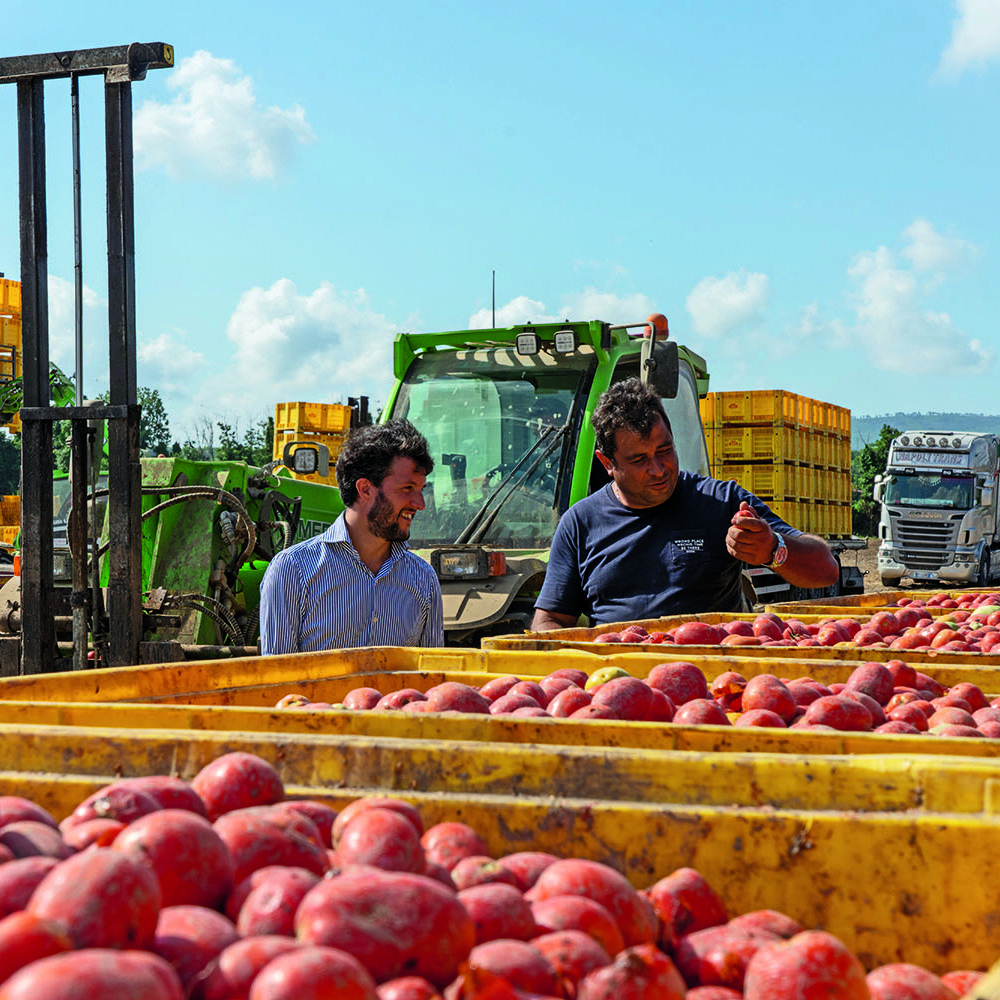
La Doria continues to work with specialist farmers in the region to source the best tomatoes
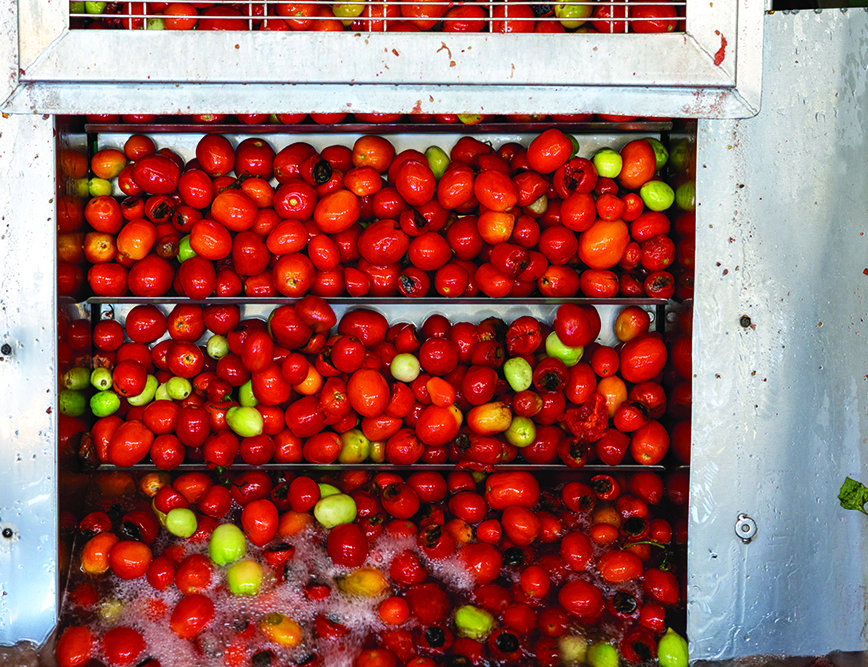
The first stage after harvesting involves washing the tomatoes to get rid of mud and stones
In 2016, says Diodato, La Doria was the first such company to produce a sustainability report outlining its carbon dioxide reduction goals. “We map our consumption all the way along the supply chain and implement measures to reduce our carbon impact. Photovoltaic panels, for instance, make us less reliant on energy from non-renewable sources. Also, because packaging is so crucial to our industry, it’s important to us that it be more recyclable.”
New techniques are now in place to minimise damage to the soil, find natural alternatives to chemical agents and reduce the water and food wastage that was formerly inherent in such large-scale production. In 2022, the company recovered some 98 per cent of its food waste – discarded peels and seeds can be reused in animal feed, while fruit kernels are passed on to the confectionery industry. All of which sounds duly ultramodern, even as tomato plants bloom across the landscape in much the same way they have for decades, or centuries.
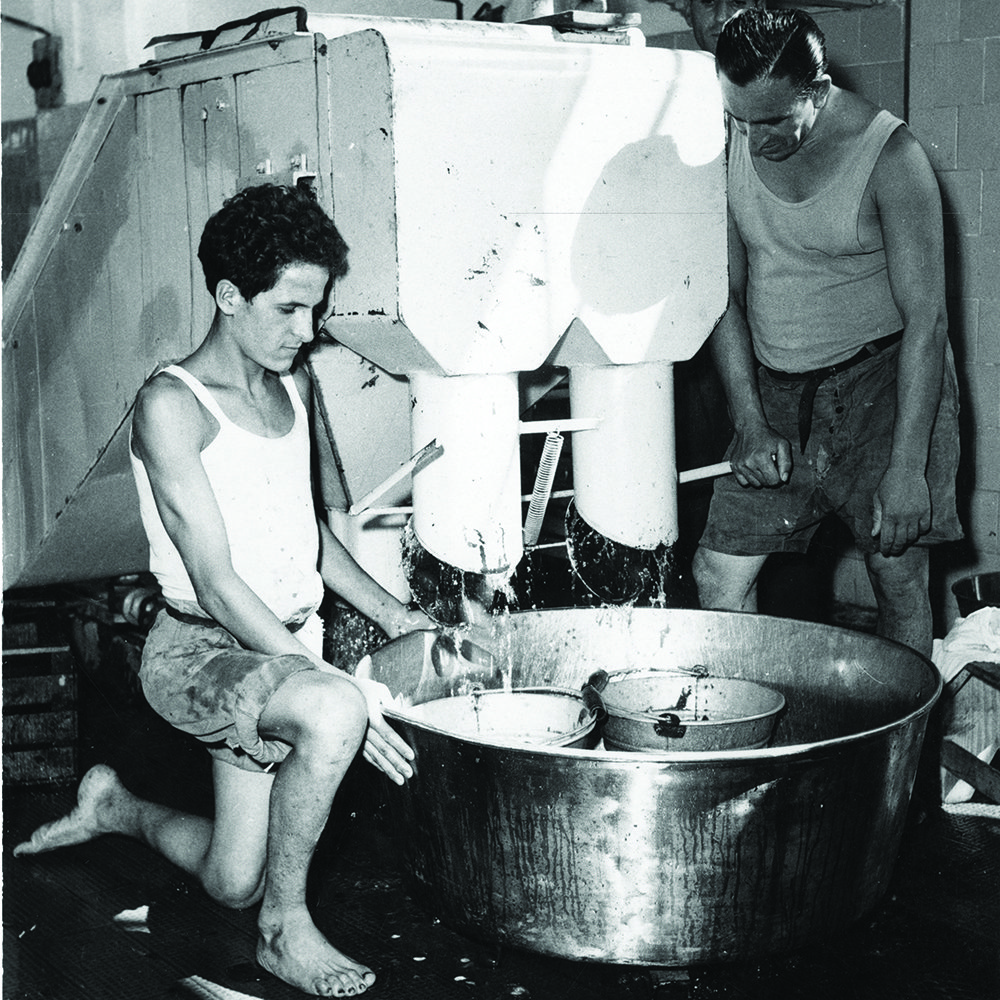
Boiling tomatoes back in the day; harvesting machines lift the tomato plants out of the soil

Diodato Ferraioli, the founder of the company, and his wife
Diodato himself represents the third generation of this family business. His father Antonio Ferraioli remains CEO of La Doria, while his cousin Enzo Diodato Lamberti heads their UK subsidiary. For more than a decade, the company has also operated under the banner of Tradizione Italia, a trade consortium that brings together other brands whose products can be similarly stamped as ‘Made in Italy’.
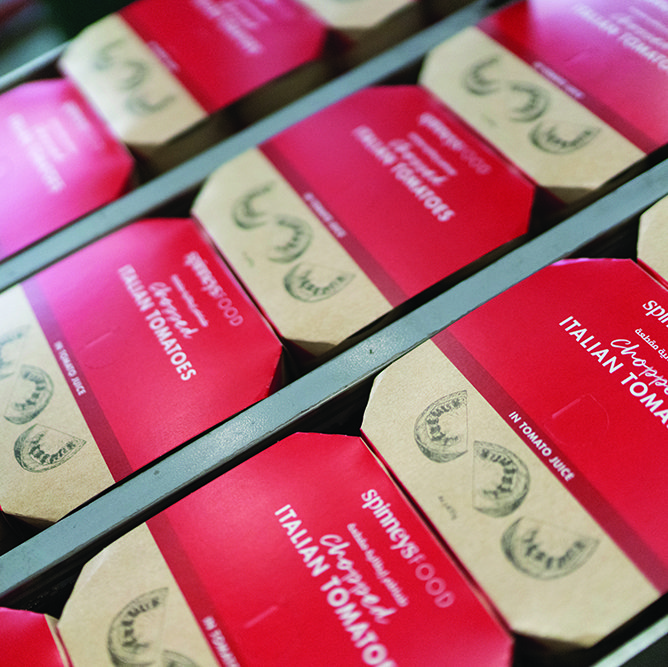
Spinneys works closely with La Doria for its line of canned Italian tomatoes
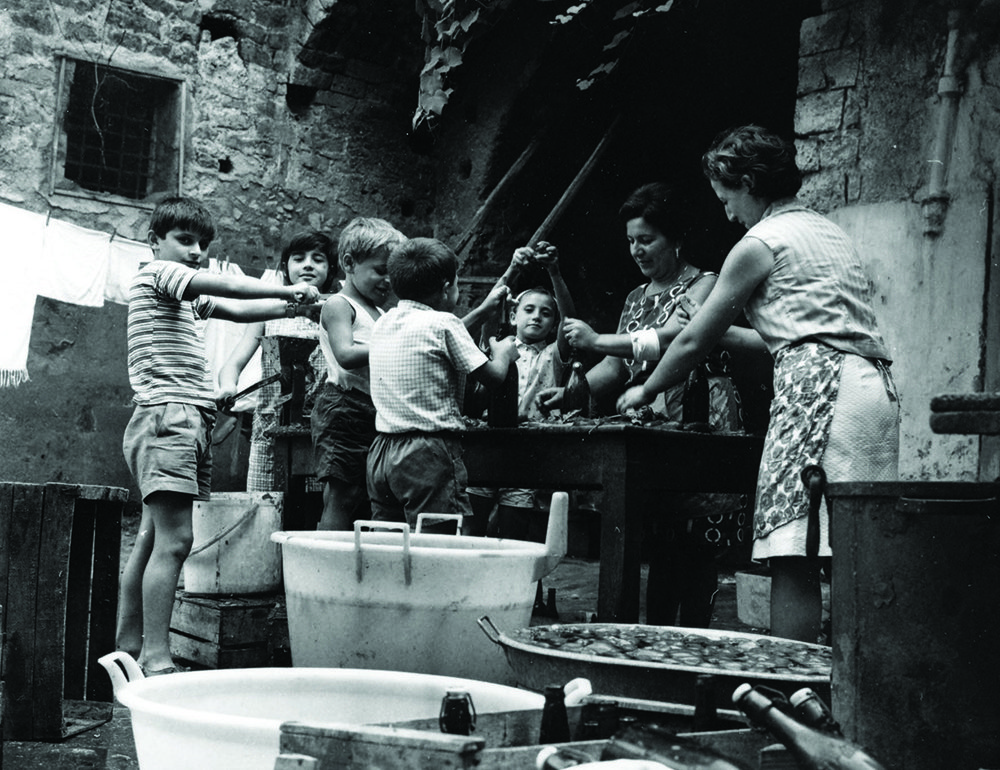
Preparing tomatoes for preservation has been a family ritual handed down through the generations
There’s no competition, he explains: the whole system is based on shared interest. “We joined forces to promote our products in a more compelling way, go to trade shows together, take joint initiatives because we have so many customers in common.” Many of these are Spinneys shoppers of course, and to make your way along store aisles is to move across Italy from region to region by way of olive oil, balsamic vinegar, and of course those peeled and chopped La Doria tomatoes that seal the sweetness of the land itself into a can.
